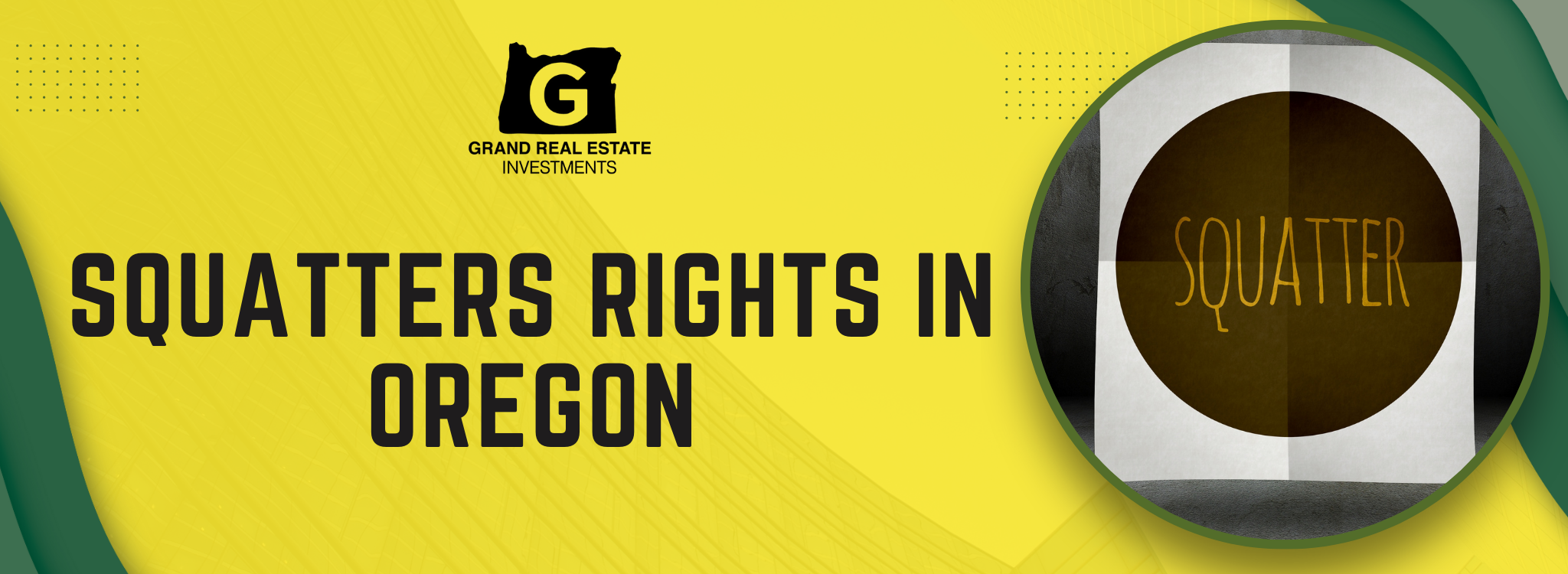
Legal Implications of Squatting in Oregon
What Are the Possible Legal Consequences for Squatters?
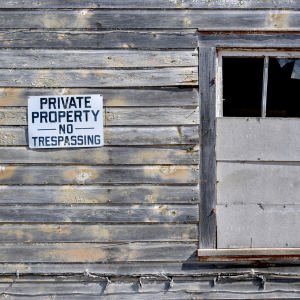
Due to Oregon’s extremely stringent property laws, squatting is prohibited and can result in major legal issues. Squatters may be evicted and accused of trespassing, which is illegal in Oregon. In these cases, the police are heavily involved and frequently issue an eviction notice after a property owner lodges a complaint. For squatters to assert adverse possession, they must demonstrate that they have been the only users of the property for a specific time. Squatters may be sued because of this difficult-to-understand process, which rarely results in ownership.
Role of Law Enforcement in Handling Squatters
Keeping the community safe and dealing with illegal occupancy is what Oregon’s police do. People who own land can file a complaint about squatters, which could lead to the police being called. If they need to, officers can send out an eviction notice. When the unlawful detainer process starts, squatters are sometimes forced to leave a property. When law enforcement and the legal system work together, property rights are protected, and there are ways to settle disagreements.
Are There Legal Defenses Available for Squatters?

In Oregon, squatters don’t have many legal options. Adverse possession is a defense that can be used, but it needs to be shown that the person has had clear, constant, and exclusive use of the property for a certain amount of time. People who are squatters may also argue about their rights, but this usually needs strong evidence and legal help. Understanding how civil courts work and how Oregon law handles adverse possession is important. Getting professional legal help is essential for resolving disagreements effectively.
Any legal advice given by Grand House Buyers or affiliates is only meant to be informative and should not be used instead of talking to a qualified lawyer.
How Does Adverse Possession Differ From Trespassing?
Conditions under Oregon Law that Define Trespassing
Trespassing is a crime in Oregon, defined as entering or remaining on another person’s property without permission. In Oregon law, trespassing is knowingly entering or remaining on property owned by someone else without the legal owner’s consent. Civil trespassing occurs when someone uses or occupies property without permission, which can result in legal consequences. Understanding these rules aids property owners and potential offenders in avoiding problems under Oregon real estate law.
What is the Process to Convert Trespassing into a Claim of Adverse Possession?
Trespassing must meet certain requirements to be considered a valid adverse possession claim. The process begins with the squatter’s obvious and consistent use of the property. To make a legitimate claim, the person must occupy the property openly, as if they were the rightful owner, for ten years, as required by Oregon law. Possession must be exclusive, constant, and contrary to the true property owner’s interests. Meeting these requirements eventually enables the trespasser to acquire legal ownership.
How Do Property Owners Prove Trespassing to Prevent Adverse Possession?
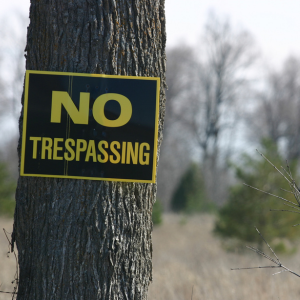
Property owners must act quickly to prove trespassing and stop adverse possession claims. They should:
- Gather Evidence: Collect proof of any unauthorized activity on your property. Take photos and videos, and keep written records as evidence.
- Eviction Process: To remove unwanted occupants, use the Oregon eviction process by all state regulations.
- Property Boundary Issues: Conduct regular property surveys to identify and resolve boundary issues. Clear boundaries avoid disputes and protect your land use rights.
- Monitor Land Use Rights: Stay current on Oregon’s land use rights so that any unauthorized changes or encroachments can be dealt with quickly.
Property owners can safeguard their rights and avoid adverse possession claims by taking these precautions. Consider consulting with experts via platforms such as Grand House Buyers.
Legal Disclaimer
This content is for informational purposes only and should not be considered legal advice. For specific legal guidance, consult a qualified attorney.
What Actions Can Property Owners Take to Protect Their Properties?
Are There Preventative Measures Against Squatting?
To prevent squatters from occupying their properties, property owners can take the following steps:
- Regular Inspections: Regular inspections should be performed to ensure that the property is occupied and in good condition.
- Security Measures: Install security systems, such as alarms and surveillance cameras.
- Legal Preparedness: Understand local eviction procedures and adverse possession laws to resolve problems quickly.
- Maintain Presence: Regular visits or hiring a property management company can help give the impression of occupancy.
- Maintenance of Abandoned Property: Ensure that unoccupied properties are regularly maintained.
These steps can help protect your property rights and avoid legal squatting situations.
How Can Regular Property Inspections Safeguard Against Squatters?
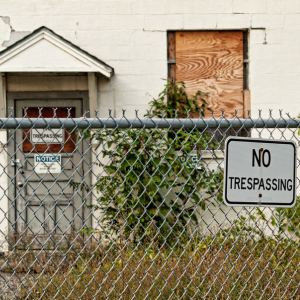
Regular property inspections are necessary to protect your investment.
- Early Detection: Quickly detect any unauthorized occupancy to prevent squatters from gaining legal possession.
- Property Management Collaboration: Hire reputable property management companies to perform inspections and maintenance.
- Maintenance: Keep the area clean and landscaped to deter squatters by making the property look occupied.
- Documentation: Maintain records of inspections and maintenance work as proof of occupancy.
Property owners and landlords can effectively protect against potential squatters by following these practices.
The Importance of Maintaining Property Boundaries Clearly
Clear property boundaries are crucial for protecting your rights and avoiding disputes:
- Conduct Surveys: Regularly perform property surveys to keep boundary lines accurate.
- Title Search: Conduct a title search to ensure clarity in ownership and identify any possible encroachments.
- Property Line Agreement: Create written agreements with neighbors to resolve boundary line disputes amicably.
- Legal Recourse: If disagreements occur, promptly seek legal action to enforce property law protections.
Maintaining clear property boundaries ensures property owners safeguard their investments from encroachment and legal disputes. Regularly review and update boundary surveys to reflect any changes accurately.
Resolving Property Disputes Arising from Squatting
How Are Disputes Over Squatters’ Rights Typically Resolved?
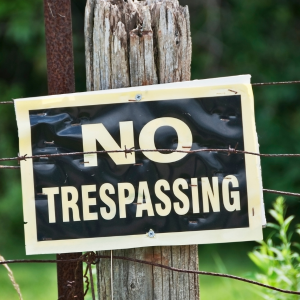
Resolving disputes over squatters’ rights in states like Oregon often involves understanding adverse possession. According to legal principles, squatters who meet specific requirements, such as living on the property openly and continuously for a specific period of time, can claim ownership of the property through adverse possession. The property owner may need to take legal action, such as initiating the eviction process or retaining legal representation, to address these disputes.
Any homeowner looking to sue for adverse possession should familiarize themselves with the local statutes and regulations and gather any relevant evidence. To properly navigate the intricacies of property disputes and adhere to legal processes, it is advisable to involve an experienced attorney.
Role of Mediation and Legal Aid in Property Disputes
Mediation can be a helpful alternative when parties cannot agree on how to resolve a property dispute through litigation. A third party assists in maintaining objectivity to facilitate communication and reach a mutually agreeable resolution. In contrast to going to court, this approach can save money and time.
People in Oregon who are up in a property dispute but can’t afford a private lawyer can apply for legal aid. Some people may need help figuring out their property rights, but groups like Oregon Legal Aid are there to help. The best way to safeguard your legal position and guarantee effective representation is to consult an Oregon property rights attorney.
When Should Property Owners Seek Professional Legal Assistance?

As soon as a property owner becomes aware of a squatting problem, they should consult a professional lawyer. The involvement of legal counsel at an early stage can mitigate escalating disputes and facilitate the management of the eviction process. The lawyer will represent the owner’s best interests and provide guidance on the necessary legal procedures.
Talking to an attorney from the Oregon Bar Association can be helpful if a formal eviction is needed because they know the laws and procedures in the state. Swift legal action by seasoned experts can safeguard property rights and facilitate a more amicable resolution.
Disclaimer
This material is provided for informational purposes only and is not meant to be taken as legal advice. Advice from an attorney should be sought for matters of specific law.
Please contact Grand House Buyers anytime for further information about purchasing or selling real estate.
How Does Oregon Respond to Unauthorized Occupancy Claims?
What Agencies Assist in Handling Cases of Unauthorized Occupancy?
Several agencies in Oregon assist with managing unauthorized occupancy. Law enforcement is critical in resolving complaints and ensuring community safety. They collaborate with legal counsel to guide evictions while maintaining respect for both property owners and unauthorized occupants.
Oregon’s housing rights organizations provide valuable support for property owners facing unauthorized occupancy. They offer legal advice to help navigate evictions and resolve disputes efficiently. These organizations also inform property owners about their legal options and proper handling procedures.
Involvement of Local Authorities in Addressing Complaints
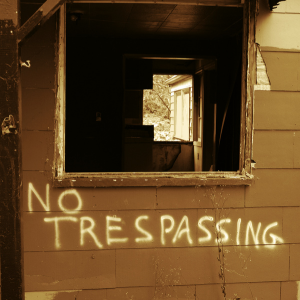
Oregon’s local governments are indispensable in addressing unapproved occupancy complaints. Usually, the first point of contact is law enforcement, which helps Oregon’s legal system enable eviction. They settle property conflicts using municipal agencies and attorneys.
Local authorities evaluate the matter after a complaint comes to decide what to do. By acting quickly, local authorities ensure complaints are handled promptly and according to state laws, providing a clear path for affected property owners.
How Do Community Programs Contribute to Mitigating Squatting Issues?
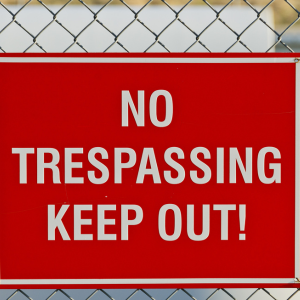
Community programs in Oregon are critical for preventing and controlling squatting. These initiatives are centered on prevention and educating property owners and potential squatters. They intend to raise awareness about squatters’ rights and legal responsibilities in order to reduce the risk of unauthorized occupancy.
Legal aid is frequently provided through programs to assist individuals in understanding their rights and responsibilities. These programs promote lawful behavior and property protection by encouraging community cooperation. Residents are empowered through community efforts to protect their neighborhoods and avoid legal disputes.
Contact local housing organizations or law enforcement agencies for more information on Oregon’s unauthorized occupancy or community programs. Grand House Buyers assists property owners by providing insights and resources to manage these challenges effectively.
This information applies to Oregon and its cities like Portland, Salem, Eugene, and more. For help or questions, call us at (541) 214-2163. You can also visit our website at Grand House Buyers for more details.
FAQs:
What are the requirements for claiming adverse possession in Oregon?
To claim adverse possession in Oregon, you must live on the property openly and continuously for 10 years without the legal owner’s permission. This means your presence must be clear and noticeable to others. You also need to hold uninterrupted possession throughout the 10 years.
How does the civil court process work to resolve property disputes involving squatters?
The civil court process includes filing a lawsuit to get a quiet title action, which legally acknowledges your ownership rights. Oregon’s landlord-tenant law addresses these issues. If dealing with a squatter, you must follow the legal procedures, which may involve eviction.
Can someone with disabilities affect the adverse possession timeline in Oregon?
Yes, if the legal owner has disabilities or is legally incompetent, the statute of limitations for adverse possession claims might be extended. This extension alters the time needed to claim ownership through adverse possession.
How do tenant rights and adverse possession laws interact in Oregon?
Tenant rights and adverse possession laws in Oregon are distinct but can overlap. Tenant rights protect those with a rental agreement, while adverse possession involves occupying property without a lease. Knowing both sets of laws is essential for handling property disputes.
Are there risks involved in removing a squatter from a property in Oregon?
Yes, attempting to evict a squatter is illegal in Oregon and could result in legal issues. It is crucial to use legal methods to reduce risks and comply with Oregon real estate laws.
What role does a property survey play in ownership disputes in Oregon?
A property survey is key to settling ownership disputes as it clarifies boundary lines and establishes legal ownership. Surveys are often used alongside quiet title actions to resolve property lines or usage rights conflicts.
How can one protect their property from illegal squatting in Oregon?
Avoid leaving your property neglected or vacant for long periods to prevent illegal squatting. Regular upkeep, proper signs, and secured access points can deter squatters. Also, stay informed about local property records and laws.
What is the significance of title insurance in property transactions in Oregon?
Title insurance is crucial in Oregon real estate deals because it protects buyers from potential ownership disputes. It ensures that any claims or liens on the property are addressed before purchase, offering peace of mind.
Key Insights
- In Oregon, to claim “adverse possession,” you must show 10 years of continuous occupancy under the “statutory period Oregon” rule, demonstrating exclusive and notorious possession.
- Handling “Oregon real estate disputes” involves knowing “landlord-tenant law in Oregon,” especially regarding possession rights and rental disputes.
- To resolve an adverse claim in Oregon, you might need a “quiet title action Oregon,” particularly when dealing with unrecorded deeds or conflicting property records.
- “Notorious possession” is crucial for adverse possession claims, where the occupant’s use of the property must be obvious to others.
- When facing “property survey issues” in Oregon, getting “title insurance Oregon” is crucial to safeguard ownership rights against unexpected claims.
- Oregon property deed laws outline the rules for transferring property titles, affecting legal ownership and potential “illegal squatting Oregon” defenses.
- If adverse possession claims arise, consulting with a good “property law firm in Oregon” can help navigate complex “Oregon common law” procedures.
- Engaging in a “quiet title action Oregon” is often necessary to legally establish ownership and settle disputes over continuous possession or occupancy.
- Understanding “self-help eviction Oregon” rules is essential for landlords to deal with unauthorized occupants without breaking the law.
- Experts advise reviewing “Oregon property records” to manage disputes over “land use rights Oregon” and ensure compliance with local laws.


